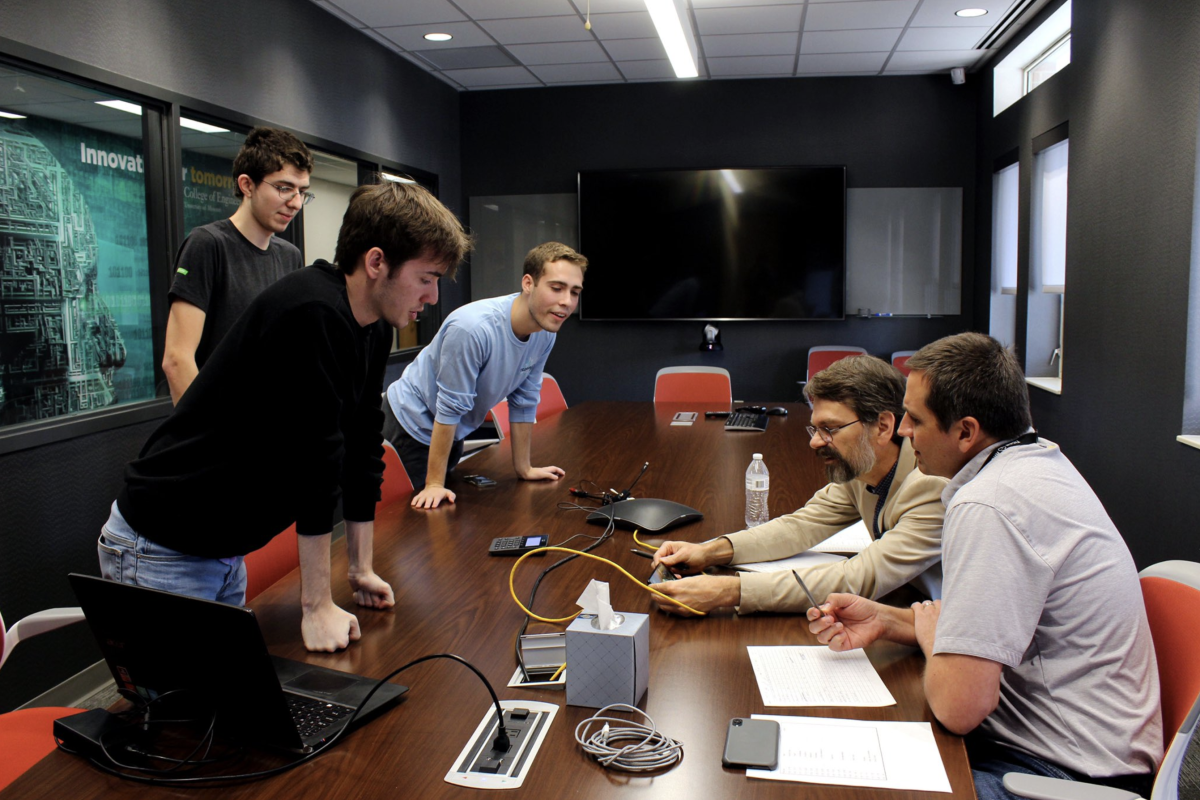With the abundant growth of the tech industry, computer science has become a sought-after field in the world of science and engineering. In fact, the projected job growth in the tech industry from 2016 to 2026 is a staggering 135%, according to the Bureau of Labor Statistics. In 2015, Amazon overtook Walmart as the most valuable company in the world, according to financial statistics firm FactSet. Be it that the industry has grown so much over the past several decades, the population of students in the Department of Electrical Engineering and Computer Science at MU is now more than 600 undergrads and over 300 graduate students.
To cater to this new field, events like the annual Hackathon, a 36-hour computer programming competition from Nov. 8 to 10, gave students the opportunity to flex their technological muscles or become more acquainted with the real-life obstacles of working in the tech industry.
For Carter Landis, Hackathon director and liaison, the event is one in which students, no matter their interests in the field, can pursue their passions and practice the skills they have acquired.
“Starting my freshman year in 2017, this was the first year in which we had a 36-hour Hackathon,” Landis said. “The Hackathon has a couple of primary goals, one being to give people who are new to programming a good space to learn. A lot of times as a student or if you aren’t familiar with something, it’s hard to get started and bite off a chunk and start chewing.”
On Friday at 6 p.m., the event officially began. Students of various computer science disciplines gathered in Lafferre Hall with sleeping bags, snacks and water to camp out in the building for the weekend.
Dustin Hengel, senior computer science major, has been involved in 11 past hacking events. This event provides him with the ability to exert his energy into a project, while still remaining conscious and healthy.
“It depends on how hard you go into it, I always advocate eight hours of sleep each night whether I’m hacking or not, so I am still going to go home and go to bed, even if there are still things to be done,” Hengel said. “I do know there will be some people who are going to be awake the whole weekend. I sort of rely on sheer energy, I don’t want to mess up my sleep schedule. It’s just a casual, laid-back event, [I’m] not in there trying to spite a win out of the whole thing.”
The U.S. has become a giant in the tech industry over the past 40 years. Companies like Apple, Google, Facebook and YouTube all have their headquarters in and around an area south of San Francisco, colloquially known as Silicon Valley. Despite recent setbacks and concerns, it has become the center of American and arguably world technological innovation.
With the tech industry growing in prominence, various company recruiters were in attendance of the Hackathon, and for Landis, that gave students the chance to expand their network and show what they can do. At the same time, it also allowed students to network with their fellow computer science enthusiasts and to work together. Which, in retrospect, is the goal of the event as a whole.
“One way of expanding your network is with peers, so … meeting other hackers at your university who are interested in the same things that you are,” Landis said. “Some of the connections I have made at Hackathons I still have to this day, and when I go to other Hackathons at other universities I’ll get to meet those people and connect with them. So it is good to have that network in technology.”
_Edited by Janae McKenzie | [email protected]_








